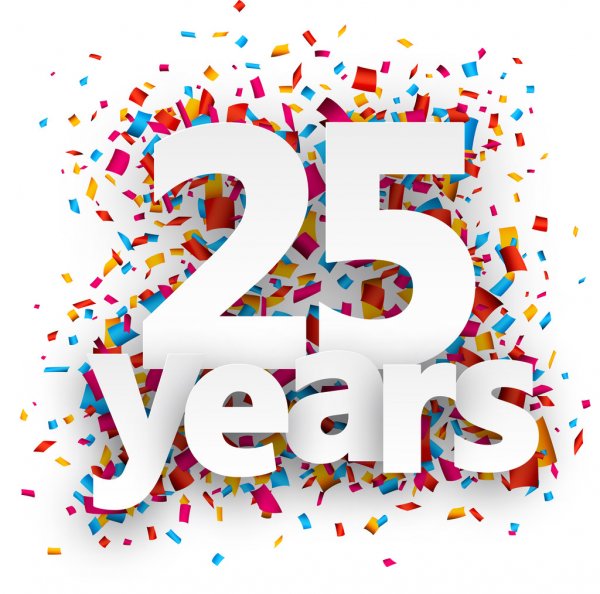The Start
Phoenix Training and Development has been running for almost twenty-five years. The first ‘paid for’ training course – and I wouldn’t describe it any other way – that we delivered was on October 5th 1995 and that has always been the day we recognise as our official launch. It’s probably the most obvious thing to say that ‘the world was a very different place back then’ and the events of the last nine months have shown us how things are constantly changing and how we have needed to adapt even more.
On one level, some things haven’t changed – we work with our clients to help them achieve the results they’re striving for. We help individuals perform better, we help people to re-engage with their roles, to increase levels of motivation and to help people overcome challenges and problems. We set out to do this back in 1995 and that remains our core purpose. Of course, what has changed is the way we do it. When a business reaches milestones such as twenty-five years, it is natural to think back to what we did years ago, how we have changed and adapted and how, what we offer, has developed so significantly.
As mentioned earlier, our first paid-for piece of work was a three-hour sales training session for a local newspaper advertising team, with limited experience but plenty of character. I’d had no pre-training contact with their managers or the participants themselves other than the publisher of the paper telling me they needed some sales training! Armed with a flip chart and pen, I set up in an attic style room in a trading estate office – I can still remember the broken window and odd collection of chairs around the table.
I sat there nervously waiting for the group to arrive, well aware that we hadn’t even discussed any specific content or objectives for the training. My only steer on what to include was that the subject was ‘sales’. They all arrived just about on time for the 2pm start and that was it, we were off and running as a training and development company.
The Realisation
In many ways the style of this first session helped me a lot. I did not know it at the time but it and many more like it over the next few months, were crucial lessons in developing a flexible participant-led approach to delivering effective – what are now referred to as learning and development events. Of course, in those days, they were simply called training courses. I gained confidence and knowledge, delivery expertise and most importantly group management skills. I also started to realise that there might be something missing, even though the feedback was generally good and the training was always considered successful.
To be honest, for the first five years of the business, we focused on delivering successful training courses. However, as we started to revisit clients and work with groups for a second or third time, we realised that not a lot of what we had worked on previously was actually being applied and we were going back over those skills and techniques that we had already covered. It was a realisation for us a business – that, even though it was considered successful, the training was not sticking and not being used. Nowadays, we are all fully aware of this. Research and data prove that single event learning and training events rarely achieve long term results or behavioural change. In the year 2000, this realisation started to shape our approach and we knew we had to do more than simply provide training. It was our responsibility to make sure that participants used what they learnt and that it had an impact on results. We could not consider our training effective unless it made a tangible long-term difference to performance. We had to change the way we worked.
The ‘Phoenix’ Way
As we grew and needed more people to deliver courses, we had to find training consultants who shared the “participant first” philosophy. We started to develop a full-time delivery team and tried to avoid using too many freelance consultants. The only ones we did use were what I would describe as “phoenixified” – they understood that it wasn’t just about delivering a course and moving on. The full time and freelance team recognised that as a deliverer of results it was as important to focus on three key areas – simply broken down into before, during and after. Those who did become part of the full-time team shared our beliefs and values and this was reflected in the way they worked. Financially, it was an extra cost to bare for the business but it was a statement to show how we operated.
From this turning point, we have worked hard to change how people see and use training and development. Slowly but surely businesses have recognised that it is not acceptable to just send people on courses – you do still see this but thankfully much more rarely than twenty or even five years ago. We have far more in-depth conversations with stakeholders and participants before we even get into the actual or virtual training room).
The introduction of our online platform in 2013 was another turning point for Phoenix – I clearly remember our meeting with the creators of the platform. A like-minded company from Sweden (Promote International) who had found our website and read our blogs, saw that we shared the vision of successful training going well beyond the training room itself. I remember thinking about how the cost of it could be prohibitive but this was quickly outweighed by the huge potential that we would be able to offer our clients. It was a significant step for the business as we now had a platform to “stretch” the learning, a means to support participants ongoing and to start to get them to realise that learning is not something you go to and then return to work.
The Vision
This has been our biggest challenge – it lies at the heart of our vision and purpose. Our objective is to place learning and development at the heart of every organisation. Trying to get people to view learning and development as part of their job and not something they attend from time to time is a huge challenge. #Learningisworkworkislearning sums it up. It is great to see so many advances in the learning and development sector – even the use of the words “learning and development” reflects a changing approach. Participants selecting programmes to attend rather than being sent, online platforms to support ongoing learning are also huge steps forward. Virtual delivery has really emerged through lock down and the advent of remote working and has proved a really effective way to ensure people can still get the development they require. In fact, it could be argued that virtual will stay as the preferred delivery format even after the Covid crisis has passed, whenever that may be. In many ways it solves the issue of people leaving their offices to go to an L&D event – the L&D event comes to their desk.
The End?
After twenty-five years in business we have learnt a lot, of course we have, all businesses do. We have improved and adapted, sometimes quickly and sometimes not so quickly! We continue to do so and look forward to what the future may hold.
I know one thing for sure, if you had told me in 1995 as I drove back from Slough having delivered our first course, that we would still be around in twenty five years, delivering blended programmes throughout the world to a truly diverse client list, with partners in Beijing, Seoul, Stockholm and Beirut – I am not sure I would have believed you!
Bill Osmond, MD

